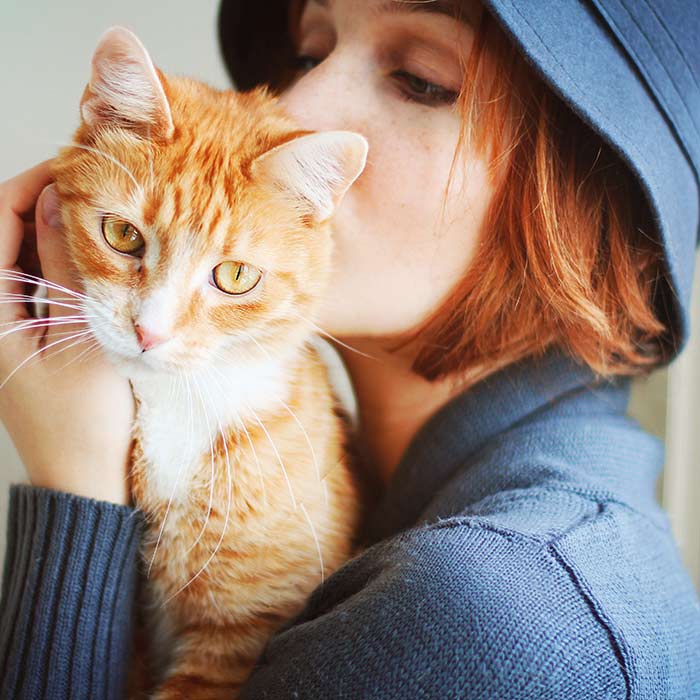
How to Protect Your Cat From Feline Distemper
- By
- •
- 08 Dec, 2017

As a cat owner, you surely want to protect your feline companion from illness and disease. One of the most threatening diseases that can affect cats is feline distemper, a condition caused by the feline panleukopenia virus. The virus attacks the body's most rapidly dividing cells, leading to serious anemia and neurological symptoms and often claiming the cat's life.
Since feline distemper is such a serious threat, it's important to do all you can to protect your pet. Here are three key ways to protect your cat from feline distemper.
Get Your Cat Vaccinated
The feline distemper vaccine is a core vaccination for cats. Usually, the vet will give your cat a combination vaccine that protects not only against feline panleuokpenia, but also against rhinovirus and calicivirus - two common causes of upper respiratory infections in cats.
Your kitten can receive the first distemper vaccine between six and eight weeks of age. He or she will then need several follow-up vaccines in the months that follow. It's essential to follow up with these additional vaccines, since the initial vaccine alone won't provide lasting immunity.
Throughout your cat's adult lifetime, your vet will periodically administer booster vaccines to help ensure your cat remains immune to the virus.
Some pet owners assume that if their cats live indoors only, there is no need to vaccinate them against distemper. However, this is not the case. Even indoor cats can be exposed to distemper if you bring home the virus after petting a neighbor's cat, if a fly brings the virus into your home, or even if a stray cat rubs against a patio chair that you later bring inside.
Keep Your Cat Indoors
While indoor cats are not completely guarded against feline distemper, there are much less likely to contract the virus than a cat who goes outside. And while the feline distemper vaccine is a very effective immunization, no vaccine is 100% effective - which means that even vaccinated cats are safest indoors.
If your cat is used to going outside and you have an outdoor cat for pest control purposes, just know that the likelihood of distemper is greater. Keep an eye out for symptoms such as the following:
- Bloody diarrhea resulting in dehydrationRough hair coat and weight loss
- Refusal to eat or drink
- Resting their chin on the floor for long periods of time
- Sudden lack of coordination, such as falling down or walking with a stumbling gait
If you have even the slightest suspicion that your cat may have distemper, call your vet immediately. Cats who receive treatment promptly may survive. Those who become too severely dehydrated before receiving treatment often don't make it.
Choose Your Groomer and Kennel Carefully
Cats can begin shedding the distemper virus before they actually show symptoms of illness. So, even if your groomer or kennel owner has a habit of turning away animals that appear unhealthy, there is still a chance of exposure to the distemper virus in these facilities. To reduce your cat's risk, make sure you only choose groomers and boarders who are careful about checking cats' vaccination records before allowing them into the facility.
Also check to ensure your boarding facility or groomer uses good sanitation practices. They should thoroughly clean the grooming table, cat condo or other areas that the pets come into direct contact with between each appointment or stay. This not only protects against distemper, but also against other contagious diseases like feline herpes and feline leukemia.
If you get your cat vaccinated, keep him or her indoors, and choose your groomers and kennel wisely, the risk of your cat contracting feline distemper will be very low. To schedule a vaccination appointment, contact Hirsch Animal Hospital.



